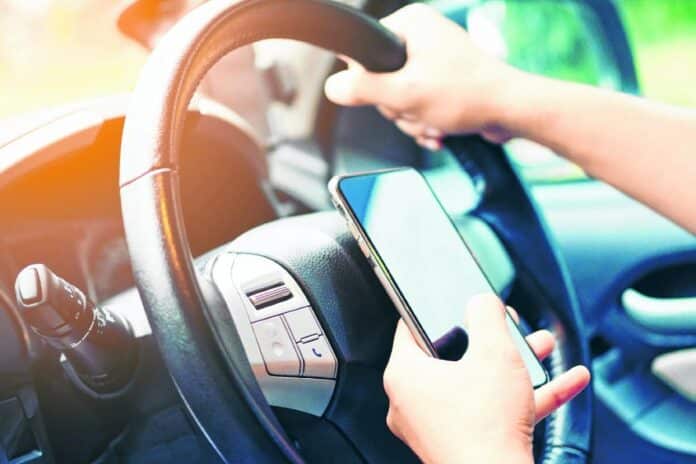
HANCOCK COUNTY — Distracted driving because of cellphone use is one of the leading causes of accidents on Indiana roads, and starting on Wednesday, holding your cellphone while behind the wheel will be illegal.
The cellphone bill, passed in the spring session of the Indiana General Assembly, was sponsored by Sen. Michael Crider R-Greenfield, and is aimed to reduce distracted driving. The new law prohibits motorists from holding or using a cellphone while operating a motor vehicle unless they use hands-free technology such as Bluetooth or a cradle, or need to call 911 in an emergency situation.
“Statistically, we know that there are way too many accidents from distracted driving,” Crider said. “Hopefully this will be something that will make the roadways safer and will ultimately save lives.”
Indiana will be joining more than 20 other states in becoming “hands free.” It already has restrictions in place on use of devices behind the wheel: In 2011 lawmakers determined it was unlawful to type, transmit, or read e-mail or text messages driving.
“That bill was really difficult to enforce,” Crider said. “The courts gave a ruling that made it not effective anymore.”
The previous laws forced law enforcement to have to prove someone was texting, and that the phone was in the person’s hand.
“This bill will hopefully fix the issues that existed before,” Crider said.
Capt. Robert Harris, Hancock County Sheriff’s Department’s public information officer, said he hoped the hands-free rules will help drivers focus on the road as they drive, reducing the number of crashes.
Harris said the sheriff’s department has instructed deputies to issue warnings for a while to help further educate drivers they see violating the new law. After some time, they will gradually start issuing citations for the violation.
The violation is considered a Class C infraction, which can carry a fine of up to $500.
“As with any new law, an education period is necessary,” Harris said.
The Indiana Criminal Justice Institute reported that accidents where cell phone use while driving was a factor have resulted in 40 fatalities since 2015.
One of the other laws that goes into effect Wednesday raises the age to 21 to purchase smoking, vaping and other tobacco products. The law also doubles fines for retailers who sell to those underage.
Harris said enforcement of that law also will include an educational phase for retailers and soon-to-be-underage tobacco users.
“I am sure when schools finally start back up we will see even more of both education efforts and violations,” Harris said.
Crider was also pleased about Senate Enrolled Act 273, a bill he sponsored, going into effect. That bill helped create a new state behavioral health commission.
“This will look at how we manage behavior health issues across the state,” Crider said. “This COVID crisis has kind of demonstrated that folks are probably more stressed than ever.”
The appointments to that commission are expected to be made soon, Crider said. The law calls for it to produce by Oct. 1 an interim report and recommendations on improving mental health programs in Indiana.
{span style=”color: #2c2f34; font-family: -apple-system, BlinkMacSystemFont, ‘Segoe UI’, Roboto, Oxygen, Oxygen-Sans, Ubuntu, Cantarell, ‘Helvetica Neue’, ‘Open Sans’, Arial, sans-serif; font-size: 15px;”}Those who break the law could be faced with a Class C infraction. If fined, you could pay anywhere from $25 up to $500 — the maximum fine for a Class C infraction.{/span}




